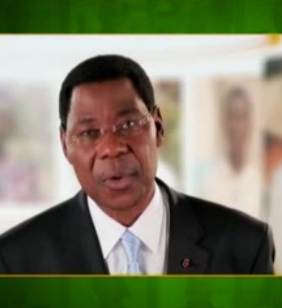|
Benin Politics Benin protests ahead of presidential polls
The independent electoral commission of Benin recently finalised its computerised electoral roll, including 3,520,576 potential voters in the West African country, which has been a regional spearhead in establishing and defending multi-party democracy.
Ombudsman Albert Tévoédjrč meanwhile proposes to set up posts outside the polling stations, where people not finding their names in the electoral roll could file a complaint and, if their identity and residence is supported by local chiefs, could be given a possibility to register for voting at the spot. The proposal has so far been met with scepticism. Rather, opposition supporters today rallied against President Boni and the incomplete electoral roll in central Cotonou. According to police reports, around thousand protesters had gathered in the centre, and were dispersed by riot police using teargas. Benin's main opposition group, Union makes the Nation (UfN), had organised the march, protesting that more than one million Beninese were denied their right to vote. The UfN has filed Adrien Houngbedji as its candidate for the presidential polls. He is widely expected to become the main challenger to 59-year-old incumbent President Boni, who only in end-January announced his desire to run for a second term at the presidency. Benin since the 1990s has enjoyed one of Africa's most functional and peaceful multi-party democracies, with heads of states accepting defeat in election and respecting the two-term limit. Despite these gains, economic development however has been slow in the country. By staff writers © afrol News - Create an e-mail alert for Benin news - Create an e-mail alert for Politics news
On the Afrol News front page now
|
front page
| news
| countries
| archive
| currencies
| news alerts login
| about afrol News
| contact
| advertise
| español
©
afrol News.
Reproducing or buying afrol News' articles.
You can contact us at mail@afrol.com









